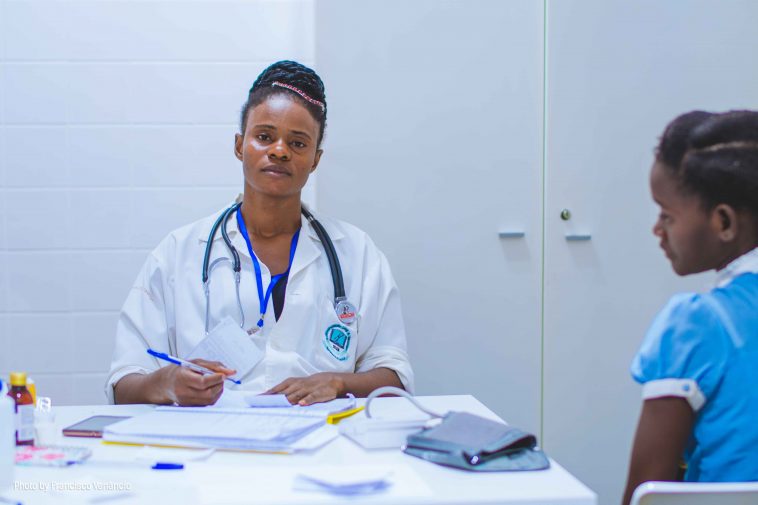Life stores Healthcare received a $1 million seed round in 2020, followed by its recently disclosed $3 million pre-Series A round.
In the most recent oversubscribed round, Health54 served as the lead investor, with assistance from Aruwa Capital Management and other current investors.
Bryan Mezue and Andrew Garza, who started the company, knew that anything they made had to make high-quality, low-cost, primary health care accessible to everyone.
This was due to their prior experience in the pharmaceutical industry and supply chain projects. In 2017, they launched Life stores Healthcare, a retail pharmacy chain that uses various forms of technology to provide customers with a wide range of services. Two business-to-business components make up Life stores.
The first thing is the OGApharmacy B2B marketplace. During the pandemic in 2020, it was put in place so pharmacies and hospitals could combine their buying needs.
Then, Life stores will go out and negotiate with suppliers to find the highest prices on high-quality medications, ultimately securing discounts of between 10 and 20 percent for its customers. The other is an enterprise resource planning (ERP) system that pharmacies and dispensaries can use to manage their operations.
Life stores Healthcare has a network of more than 750 places where its services are available. The health-tech company says that its market is growing by 25% every month and that more than 10% of pharmacies in Nigeria have signed up as clients.
It hopes to get 25% of the market by 2023, bringing the number of people it helps from 100,000 to 400,000.
According to a statement, Life stores will launch new technological features as part of its B2B services. These features include pharmacy management software, AI-driven predictive ordering, innovative credit services, and patient management projects. Additionally, Life stores will open a new processing center in Lagos to support this expansion.
Life stores will also expand their B2C services by trying out projects in patient savings, care management, and drug distribution. Startups like Life stores that digitize the distribution network and distribution to suppliers have attained scale faster and grown the most in Africa’s healthcare sector in the past year. However, telemedicine is still the most prevalent healthcare service since the pandemic.
Players typically operate on various geographies and maybe even a few different segments. The chief executive officer of Life stores explained how the company takes a unique approach to expanding its business by stating, “But we’ve adopted a bit of a different perspective, where we’re digging deep.
The company said, “Because the market is fragmented, we’re saturating some places before we move on to others.”The founders also talked about what they had learned from running their business for the past five years. For example, they talked about how important it is to form partnerships with regulators, hospitals, dispensaries, and pharmacists. They also spoke about how pharmacists use technology more often than people think and how healthcare providers are worried about transparency about the quality and cost of medications.
The seed round for Life stores is Health54’s first investment in Africa. The new company is the corporate venture capital (CVC) vehicle of CFAO Group, owned by Toyota Tsusho, and has the most prominent healthcare distribution network in sub-Saharan Africa.
With this investment, Life stores Healthcare 54’s growing network of healthcare providers and CFAO Healthcare’s current wholesale distribution capabilities in Nigeria and across Africa if it decides to grow in the future.
But for now, the health tech company wants to help it grow in Nigeria, improve its software, go after new customers, and hire more people for its senior management, sales, and engineering teams.
Techbuild’s Opinion
By 2030, Africa’s $45 billion medicines market is expected to have grown 10% CAGR to $100 billion. But the industry struggles with poorly connected and underfunded supply chains full of fake drugs that kill thousands of people yearly. In Nigeria, for example, 20–40% of all medicines are counterfeit.
A few health tech companies are effectively assisting Nigeria’s troubled pharmaceutical distribution network.
The current state of technology exerts a substantial impact on the routine activities of billions of people; a diverse range of industries has used more worldwide technology as a result of the many benefits offered by automated data handling.
One of these is the ability to do basic tasks correctly and consistently.
Platforms such as Lifestors Healthcare, which utilize technology to their advantage, assist pharmacists in the appropriate organization and storage of patient records, facilitate the precise administration and dispensing of medications, and provide tools for monitoring the efficacy and safety of medicines that have already been prescribed.
So, technology can make patients safer, help pharmacists give better care, and help people get the most out of their medicines. By accessing patient record systems, pharmacists will be better able to make patient-centered professional decisions.



